Do you have a thorough understanding of how your it acts on your horse’s mouth? Here you’ll learn exactly how your bit and its configuration work on your horse’s mouth in response to rein pressure.

Gain insight into three common problem bits with the potential to pinch, poke, or otherwise make your horse wince. Plus learn how your bit works on your horse’s mouth for a happier ride.
DO YOU KNOW EXACTLY HOW YOUR HORSE’S BIT ACTS on his mouth in response to rein pressure? Many riders don’t. I’m always surprised by the many people I encounter at my clinics (and even at some of the big shows) who don’t have a thorough understanding of how a bit’s design and action work in response to pressure.
Every horse’s mouth is shaped a little differently, and these slight variations play a role in how a bit acts on his chin, bars, and lips. A bit that works comfortably for one horse might be ineffective and downright painful to another—poking, pinching, or rubbing. This not only makes for an unhappy and potentially unhealthy horse, it also diminishes your ability to communicate with him through your rein cues—whether you’re in the show ring or the practice pen, or out on the trail.
To help you make the right selection for your horse, I’ll explain how certain bit configurations can negatively act on his mouth. I’ll describe the three most common “problem bits” people tend to misunderstand. For each, I’ll explain how the bit’s action could cause your horse discomfort and the potential problems it might create in your training. Plus, I’ll offer a few solutions for giving your horse a happier mouth.
This story is from the {{IssueName}} edition of {{MagazineName}}.
Start your 7-day Magzter GOLD free trial to access thousands of curated premium stories, and 9,000+ magazines and newspapers.
Already a subscriber ? Sign In
This story is from the {{IssueName}} edition of {{MagazineName}}.
Start your 7-day Magzter GOLD free trial to access thousands of curated premium stories, and 9,000+ magazines and newspapers.
Already a subscriber? Sign In
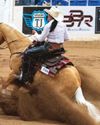
The Horse
LIFE TAKES US DOWN different paths, but I seem to be on just one, which is with the horse.
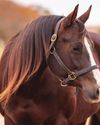
Decoding the Diseases Examined by AQHA's Six-Panel Test
The six-panel test is a diagnostic tool used to assess the genetic predispositions of horses. It's meant to discover if a horse has or is a carrier for certain hereditary diseases and traits.
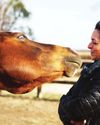
Love is Good
All horses are assured a hopeful, compassionate plan of care at This Old Horse, a program that helps not only horses but people, too.

HORSE PACKING 101
Take your trail riding to the next level with nature-filled adventures in the back or front country.

NEW HORSE; NEW PROBLEMS
Anew horse can bring excitement and energy to the barn, and even reinvigorate your passion. However, there are also a myriad of new problems that can come with a new horse, so learn how to introduce him properly to avoid these common issues.
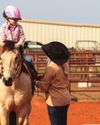
First-Timer Tips
Heading to a young rider's first event with their horse can be intimidating. Use these myths and truths to make it smoother sailing for yourself and your young rider.
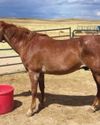
Re-Rescued: Aslan's Story
One special gelding learns about three different types of love during his rescue journey.

The Country's Hottest Horse Motels
Take your next trail-riding adventure to the next level by staying at one of these six horse motels across the United States.
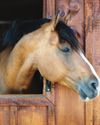
Outbreak! What We've Learned
Learn how disease outbreaks in recent years have changed the horse industry, and why it's so important to play your part when it comes to disease prevention efforts.

TRAINING THE SENSITIVE HORSE
Shift your mindset and grow your sensitive horse's pressure-handling skills to improve his confidence and your riding enjoyment.